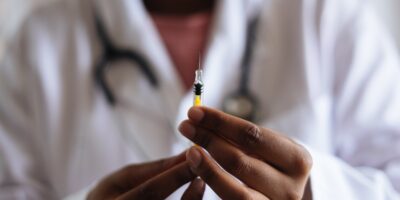The “AquAdvantage salmon”, a genetically-modified salmon developed by AquaBounty Technologies, has been approved as safe to eat by the American Food and Drug Administration (FDA). The FDA could not find any material difference between ordinary salmon and the engineered breed, except for the advertised difference: faster growth.
Ordinary salmon takes 28 to 36 months to reach market size, while AquAdvantage salmon takes merely 18 to 20 months. The key changes in the lab-spawned salmon are a growth hormone gene from the Chinook salmon and a genetic switch from the dull, eel-like ocean pout. While the Chinook’s growth hormone is only active during parts of the year the ocean pout’s “antifreeze” genetic switch allows full-year growth, even when the water is far colder than comfortable for ordinary salmon.
The salmon eggs were spawned in a Canadian facility, and shipped to Panama where they hatched and grew. They were grown in inland tanks, unlike conventional salmon farms which use ocean pens. This would prevent the salmon from escaping into the wild, and also opens the possibility of growing the salmon in the United States and elsewhere. This facility can only grow 100 tons of fish per year. In comparison, the United States imports 200,000 tons of fish annually. AquaBounty Technologies is planning on expanding its Canadian facility and selling genetically-modified eggs to fish farmers. They might grow the salmon themselves, in which case they plan to sell them in Canada, Argentina, Brazil and China, in addition to the US.
While the AquAdvantage salmon were only approved for human consumption this month, this is merely the tail end of a whale of regulation. AquaBounty approached the FDA for approval back in the 1990s. The FDA considered AquAdvantage salmon considered safe for humans as early as 2004. Five years ago, they claimed that the salmon was safe for the environment as well. This massive delay is supposedly because this was the first genetically modified animal submitted for FDA approval. Biotech executives and scientists have complained that the delay slowed interest and investment in this area. As often happens, Obama was blamed. People involved in the application suspect that the Obama administration deliberately delayed the AquAdvantage approval out of fear of political backlash.
Of course, backlash appeared anyway. Environmentalists are worried that if the genetically-modified salmon escape, they will compete with wild salmon for food and for mates. The current batch of AquAdvantage salmon are in an inland tank and are sterile, so at least for now, that is not an issue. Furthermore, some scientists believe that salmon farming in general, and AquAdvantage salmon in particular, pose no environmental risk. According to William Muir, professor of animal sciences at Purdue University, “the current practice of using wild caught salmon as a food source is not sustainable; our oceans are overfished,” and “this development provides a safe and sustainable alternative.”
There are some other concerns. Since the FDA does not require labeling food from genetically modified organisms, consumer advocates are worried that buyers will be left in the dark. The FDA also regulates genetically modified organisms as drugs, because apparently the gene inserted into an organism meets the definition of a drug. Critics claim this is inadequate, and that the FDA is unqualified to make environmental assessments. The US federal government is now reviewing its framework for regulating genetically engineered products.
Even if AquaBounty Technologies scales all these obstacles, it will be about 2 years until the next batch of AquAdvantage salmon is available on dinner plates. Even at that point, some stores and restaurants may refuse to offer the new breed. Whole Foods, Trader Joe’s, Kroger, Costco and Target have claimed they do not plan to sell AquAdvantage salmon. Red Lobster claims that they have “no immediate plans” to do so either.




Leave a Reply